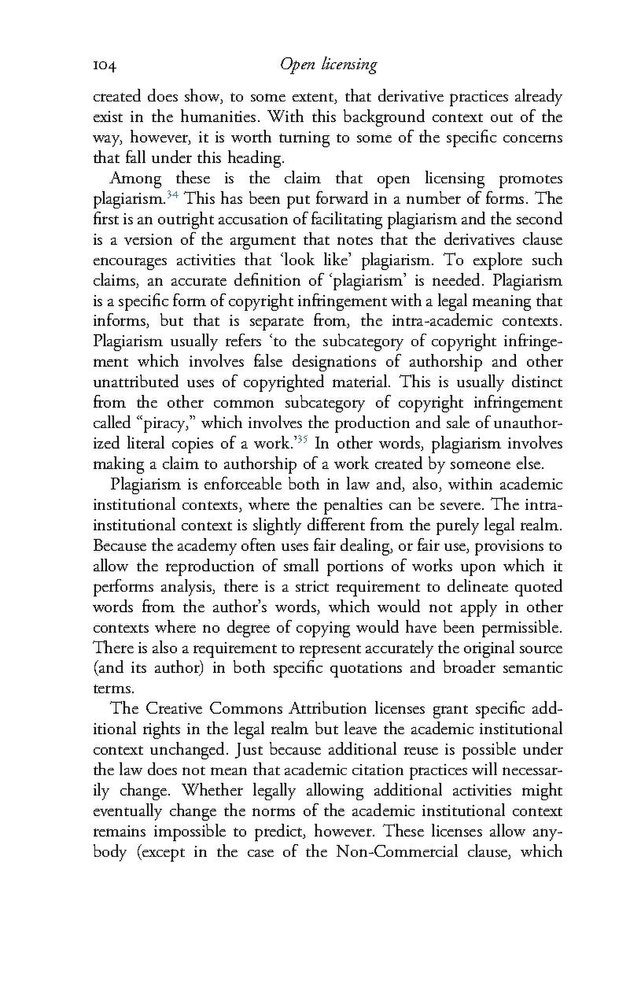created does show, to some extent, that derivative practices already exist in the humanities. With this background context out of the way, however, it is worth turning to some of the specific concerns that fall under this heading.
Among these is the claim that open licensing promotes plagiarism.34 This has been put forward in a number of forms. The first is an outright accusation of facilitating plagiarism and the second is a version of the argument that notes that the derivatives clause encourages activities that ‘look like’ plagiarism. To explore such claims, an accurate definition of ‘plagiarism’ is needed. Plagiarism is a specific form of copyright infringement with a legal meaning that informs, but that is separate from, the intra-academic contexts. Plagiarism usually refers ‘to the subcategory of copyright infringement which involves false designations of authorship and other unattributed uses of copyrighted material. This is usually distinct from the other common subcategory of copyright infringement called “piracy,” which involves the production and sale of unauthorized literal copies of a work.’35 In other words, plagiarism involves making a claim to authorship of a work created by someone else.
Plagiarism is enforceable both in law and, also, within academic institutional contexts, where the penalties can be severe. The intra-institutional context is slightly different from the purely legal realm. Because the academy often uses fair dealing, or fair use, provisions to allow the reproduction of small portions of works upon which it performs analysis, there is a strict requirement to delineate quoted words from the author’s words, which would not apply in other contexts where no degree of copying would have been permissible. There is also a requirement to represent accurately the original source (and its author) in both specific quotations and broader semantic terms.
The Creative Commons Attribution licenses grant specific additional rights in the legal realm but leave the academic institutional context unchanged. Just because additional reuse is possible under the law does not mean that academic citation practices will necessarily change. Whether legally allowing additional activities might eventually change the norms of the academic institutional context remains impossible to predict, however. These licenses allow anybody (except in the case of the Non-Commercial clause, which
